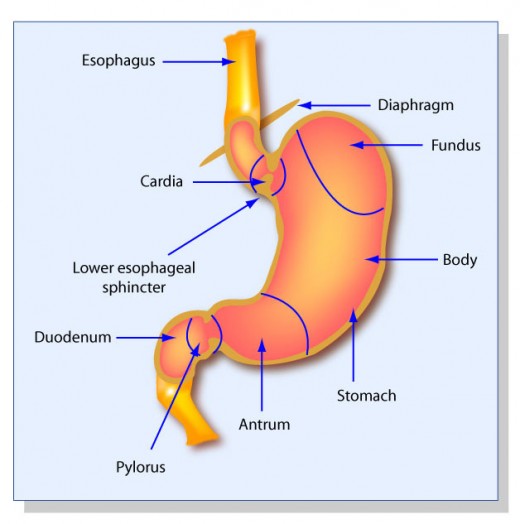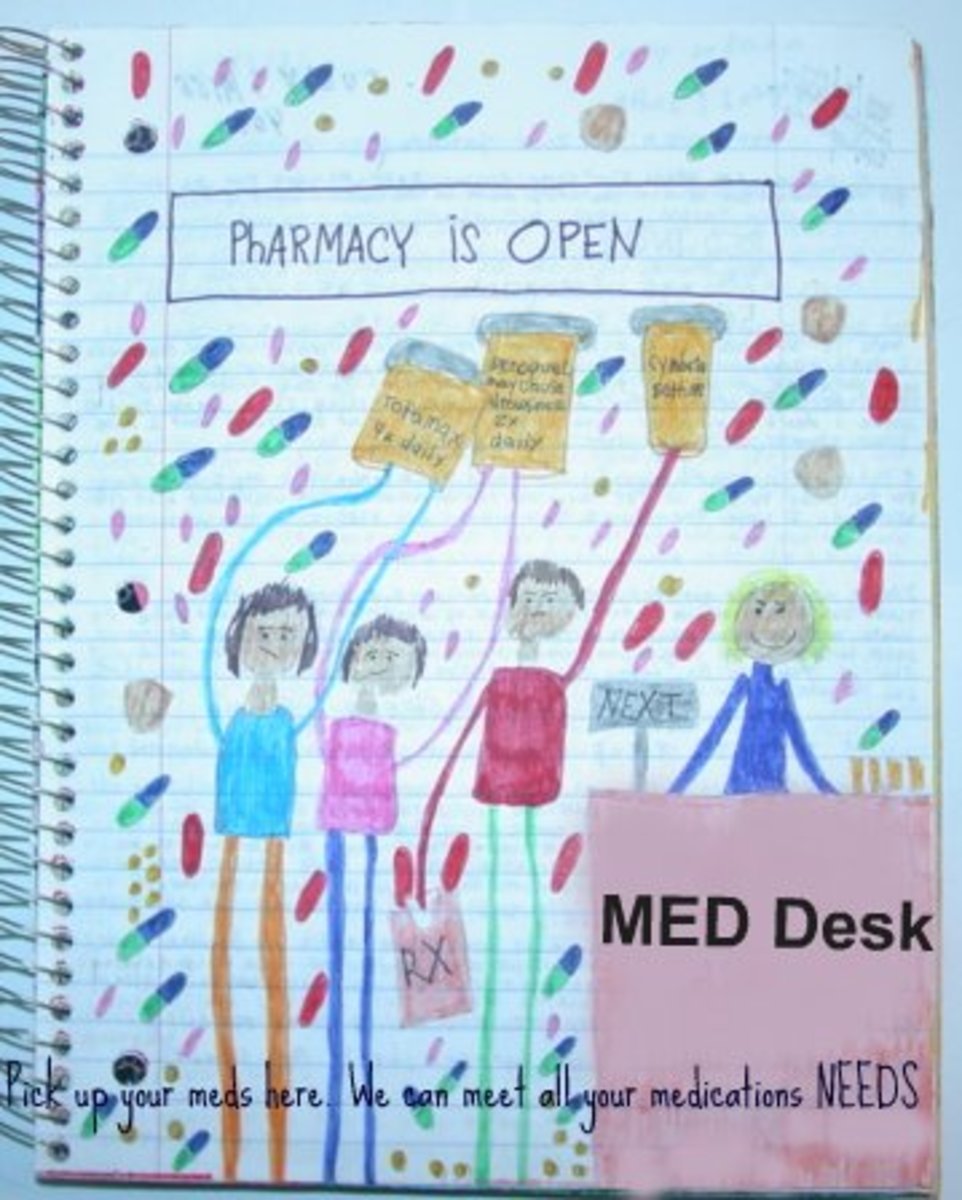- HubPages»
- Health»
- Health Care, Drugs & Insurance»
- Prescription & Over-the-Counter Drugs
The History of Aspirin, and the Possible Side Effects of Taking it Daily
A Handful of Pills

Hippocrates Knew about Aspirin...Sort of

The History of Aspirin
The father of modern medicine (Hippocrates) wrote down that grinding willow leaves and willow bark into a powder helped to relieve headaches, fevers, and minor pain. Hippocrates lived in Greece between c. 460 - c. 370 BC.
In 1853, Charles Frederic Gerhardt, a French chemist, was experimenting with sodium salicylate. He mixed this with acetyl chloride. It melted after the chemical reaction, and then turned into a solid. He called the results "salicylic-acetic anhydride" but then "shelfed" his discovery after documenting his experiment.
1859 - von Gilm followed Gerhardt to create pure acetylsalicylic acid.
In 1869 that three other scientists performed a similar experiment, and classified the results into the acetyl group.
1987 - Bayer AG chemists came up with a variation of salycylic acid that was not as harsh on the digestive system. They used the plant meadowsweet to synthesize this version. Bayer gave the credit to Felix Hoffman, while a chemist named Arthur Eichengrün made the claim that he was the lead invesigator on this project. He claims that his name was removed only because he was Jewish, and the Nazi's expunged his name from the records.
This synthesized version of acetylsalicylic acid was named Aspirin by Bayer AG, derived from the original botanical name for meadowsweet.
The rest is history, as the saying goes, as aspirin was commercialized. Bayer sold it internationally as a pain reliever, fever reducer, and cure for headaches, by 1899.
Giant Aspirin Tablet

University of Maryland School of Medicine Professor
The Downside to Taking Aspirin Daily
For some people, aspirin is a lifeline. Many Doctors prescribe it at different dosages for patients with a history of stroke or heart attack. This is to prevent another by thinning the blood.
There is a downside to taking aspirin daily.
The American College of Gastroenterology (Bethesda, MD) estimates in this pamphlet that up to 60% of US patients that take aspirin daily will develop side effects. That is roughly 14 million people!
These side effects include:
- stomach bleeding
- stomach ulcers
- holes form in stomach tissue
- death
FDA: NSAID Problems Warrant Expanded Labels
Another medicine in the NSAID group with aspirin, Naproxen, can even increase heart problems.
This is why the Food and Drug Administration (FDA) requires all NSAIDs (including aspirin) to include a warning that there is a chance of gastrointestinal bleeding and increased chance of cardiovascular problems. In 2009, the FDA then mandated that all over-the-counter NSAIDs must have an "expanded" drug label, with a bolded warning that there is an increased chance of severe stomach bleeding. (Source: Consumer Healthday)
Diagram of a Stomach

What Aspirin Does to a Stomach
To understand what aspirin does to the stomach, one must first understand the three natural defenses of the stomach.
The 3 Defenses of the Stomach:
- Mucus in the stomach coats the lining and protects it from stomach acid.
- Blood circulation in the stomach lining assists in cellular repair.
- Chemical bicarbonate neutralizes stomach acid.
When a person takes an NSAID, an enzyme called "cyclooxygenase 1" or "COX-1" is blocked, COX-1 is responsible for mucus production and blood circulation in the stomach (Defenses 1 and 2 listed above). Taking aspirin inhibits COX-1 from developing the normal protective lining in the stomach.
If this is a one-time dosage of aspirin, the stomach can heal itself in about 5 days. If it does not heal, the stomach is vulnerable to developing an ulcer.
People that take NSAIDs daily are more at risk for increased stomach problems, such as stomach bleeding, because aspirin is constantly blocking COX-1.
Aspirin Research Can Reduce Cancer
Slight Upside: Taking Aspirin Daily Could Reduce Cancers
The Queen Mary University of London performed research on 200 studies on the positive and negative effects of taking aspirin daily.
Their research found that taking aspirin daily can reduce stomach, bowel, and esophageal cancers, if taken for at least five years. However the research also cautioned that a person should not take aspirin for more than 10 years, due to increased chance of stomach bleeding. (Source: BBC Health News)
Disclaimer
The author of this hub, Zeke2100, is not a Doctor. He did not write this hub to get people that need an aspirin regimen, to stop taking aspirin. This hub was written to add to your knowledge that taking aspirin daily, even in low doses, has risks.
Thank you for reading.
© 2014 Zack Love








